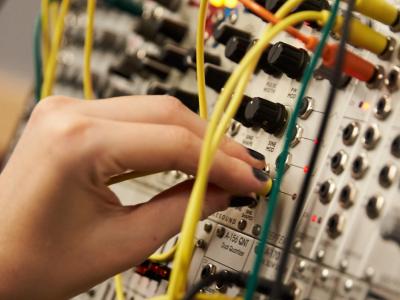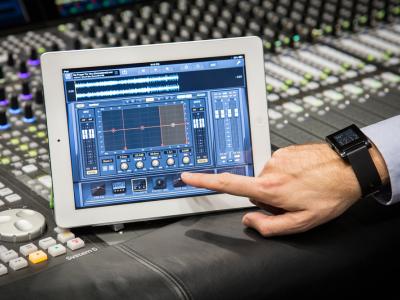What does a Production Sound Mixer do?
Although we tend to associate film and television with the visual, sound is every bit as important to the stories told in these media. Leading the process of capturing audio on set and location is the production sound mixer, an audio engineer who oversees the production audio crew, mixes and balances the audio as it is recorded, and works to identify and solve the many problems that arise in this field: background noise, echo, distortion, and flubbed lines, to name a few. Every scene is different and requires a unique approach for recording clean and high-quality audio.
Production sound mixers must be calm and communicative—capable of providing clear and professional direction to talent and crew while fully incorporating instructions from the director.
The practical duties of this job may vary based on the type and budget of the production. A sound mixer working on a low-budget television documentary (often referred to in this context as a sound recordist) might handle all the duties of a typical sound crew alone: setting up wires, affixing lapel mics, and operating the sole boom mic while mixing on a mobile controller. On the other hand, the production sound mixer on a big-budget feature film typically works with a sizeable crew including boom operators, utility sound technicians, cable wranglers, and one or two assistant mixers. Their job likely involves a mix of supervision and creative leadership: delegating minor tasks like equipment setup and alteration to the crew so that they can concentrate on capturing excellent audio.
At a Glance
This is the most senior position on any production sound team. A background in audio engineering and recording is essential to getting started in the field, as is knowing one's way around a shoot. Many production sound mixers begin their work in the industry as boom operators, utility sound technicians, or even cable wranglers—roles in which they can observe the production audio process and receive mentoring from their coworkers and supervisors. Successful sound mixers might forge a unique style, and are certain to work on higher profile projects with larger sound budgets.
The majority of production sound mixers are freelancers who find work based on past collaborations, networking, and word-of-mouth. However, a small number are employed by Hollywood production audio houses. Directors and showrunners greatly influence the hiring process, so pursuing strong professional and creative relationships with particular filmmakers and television producers can go far towards consistent work.
- Audio recording and hardware
- Audio production
- Electrics
- Acoustics
- Creative problem-solving
- Collaboration
- Communication
- Physical fitness
Production sound mixers must be calm and communicative—capable of providing clear and professional direction to talent and crew while fully incorporating instructions from the director in the midst a stressful, expensive, and time-sensitive shoot. Creativity and resourcefulness are also important qualities; the sound mixer is solely responsible for leading the team through any technical errors and sound problems that may arise. Finally, the sound recordist must be dedicated to acquiring high-quality audio recordings; a little bit of perfectionism can go a long way, as options for fixing unusable audio in postproduction are limited and expensive.
Most production sound mixers are freelancers who may be hired for jobs directly or through a production sound company. They are usually asked to assemble their own team and bring their own equipment to the gig, and may be paid on a per-day or per-project basis, depending on the contract. Travel is a certainty, although exactly how much depends on budget and medium. For example, those who record and mix sitcoms tend to do most of their work on Hollywood sets, while those who record documentaries or feature-length films are likely to spend longer periods away from home.









